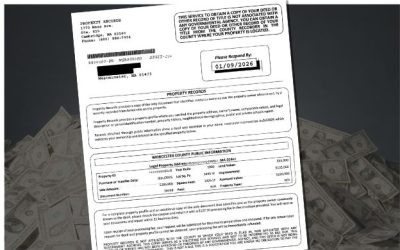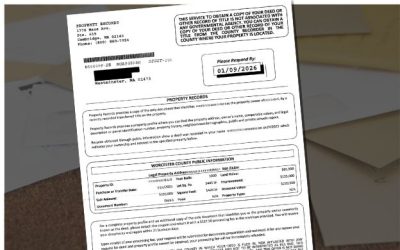
Jan 14, 2026 | Mortgage, Mortgage Lenders, Real Estate Agent Information, Real Estate Tips
How to Position the Conversation
Use January to shift from “market updates” to decision clarity.
You’re not predicting the market.
You’re helping clients pressure-test their plan.
That distinction matters.
Talking Points You Can Use Immediately
Reframe January as a Planning Window
“January is when the real costs of homeownership show up. Before we talk timing, I want to make sure the numbers still work for you.”
This positions you as a professional, not a hype messenger.
Address Insurance Early
(Before it Blows Up a Deal)
“Insurance is impacting approvals and affordability more than people realize. Let’s look at it now so there are no surprises later.”
This builds trust and prevents last-minute fallout.
Normalize Re-Running the Numbers
“Most people base decisions on last year’s costs. January is the right time to update everything.”
You’re giving permission to slow down — which actually speeds up good decisions.
Reassess Spring Expectations
“Spring markets reward preparation. January is where that preparation happens.”
This keeps you aligned with long-term outcomes, not rushed listings.
What This Does for You as an Agent
- Positions you as calm, credible, and strategic
- Reduces failed transactions later
- Improves listing quality and buyer readiness
- Builds loyalty through honesty
You’re not selling urgency.
You’re selling clarity.
Providing title, escrow, closing and settlement services to clients throughout Massachusetts and New Hampshire

Dec 11, 2025 | Mortgage Lenders, Real Estate Agent Information, Real Estate Tips
Sometimes you just need one thing — one message — that cuts through the noise and gets people talking to you again.
This is the holiday script that agents and LOs keep saying works better than anything else in their pipeline.
And yes, you can copy/paste it.
“Happy holidays! I’m wrapping up my year, and I always check in with the people I’ve genuinely enjoyed working with. Anything major happening in 2026 — real estate, financial goals, moving plans — that you want me to keep an eye out for?”
Here’s why this works:
- It’s personal.
- It’s conversational.
- It’s not sales-driven.
- It puts the client in control.
- It triggers real conversations about next-year plans.
And the replies you get?
They’re usually longer, honest, and actionable.
Bonus Tip: Send It as a Voice Text
Your voice feels more real than typed words.
Clients respond at a higher rate because it sounds like a human — not a blast message.
Then Follow Up With a Micro-Offer
Once they reply, send:
“If you ever want a quick market check for your town or a numbers breakdown, just tap me. I’m happy to help.”
It positions you as a resource without pressure.
Providing title, escrow, closing and settlement services to clients throughout Massachusetts and New Hampshire

Jul 17, 2025 | Home Buyer Tips, Home Mortgage, Home Seller Tips, Home Tips, Mortgage Lenders, News, Real Estate, Real Estate Tips
When you’re buying a home, there’s no shortage of decisions to make—fixed or adjustable rate? Move-in ready or fixer-upper? But here’s one question you might not have considered: Should you use the attorney your lender recommends for your closing?
In Massachusetts and New Hampshire, the answer isn’t as straightforward as you might think. Let’s break it down so you can make the choice that’s right for you.
Who Does the Lender’s Attorney Represent?
In many cases, the attorney your lender suggests is hired to prepare the loan documents and ensure the lender’s interests are protected. That’s right: their job is to watch out for the bank—not you.
While they may seem helpful and experienced, their primary duty is making sure the lender gets paid and the mortgage is legally enforceable.
Why You Need Independent Counsel
As the buyer, you’re making a huge investment. Wouldn’t you want someone looking out for your interests? Here’s what an independent closing attorney like The Law Office of David R. Rocheford, Jr., P.C. brings to the table:
- Protecting Your Rights: We review contracts, disclosures, and settlement statements for errors or unfavorable terms that could cost you later.
- Preventing Surprises: From title issues to zoning concerns, we catch potential problems before they derail your closing.
- Explaining the Fine Print: We translate legal jargon into plain English so you know exactly what you’re signing.
- Advocating for You: If disputes arise, we’re in your corner—not the lender’s.
What the Law Says in MA and NH
- In Massachusetts, buyers are required to have their own attorney for certain aspects of the closing process.
- In New Hampshire, it’s not legally required, but strongly recommended—especially for first-time buyers or complex transactions.
Your Advocate at the Closing Table
At The Law Office of David R. Rocheford, Jr., P.C., we help buyers throughout Massachusetts and Southern New Hampshire close with confidence. Whether you’re buying your first home or your forever home, our team ensures your interests come first—every step of the way.
Have questions about hiring your own closing attorney? Call us today and let’s talk.
Providing title, escrow, closing and settlement services to clients throughout Massachusetts and New Hampshire
“I would highly recommend David as a closing attorney. I have known David and have been using his office for many years. David’s professionalism when dealing with me, my closing department and most especially my clients has been always exemplary.”
SENIOR LOAN OFFICER, SHAMROCK FINANCIAL SERVICES
“The Law Office of Attorney David R. Rocheford, Jr. is by far the most exceptional real estate law office that I have had the pleasure of working with. The professionalism is by far second to none.”
SENIOR LOAN OFFICER, SALEM FIVE MORTGAGE SERVICES
“Attorney David Rocheford has provided settlement and title services for me and Greenpark Mortgage several years. He has assisted all of my clients, including my family and friends with mortgage closings. Always providing excellent service. Reliable and trustworthy!”

Jun 19, 2025 | Around The Home, Around The Hoome, Artificial intelligence, Buying Real Estate, Chapter 7 Bankruptcy, Consumer Tips, Credit Scoring, Fair Housing, Federal Reserve, FHFA, Financial Crisis, Financial Fraud, Financial Reports, Foreclosure, Happy Thanksgiving, Holidays, Home Building Tips, Home Buyer Tips, Home Buying Tips, Home Care, Home Care Tips, Home Closings, Home Decorating, Home Financing Tips, Home Maintenance, Home Mortgage, Home Mortgage Tips, Home Seller Tips, Home Selling Tips, Home Tips, Home Values, Homebuyer Tips, Homeowner Tips, Housing Analysis, Housing Market, Interesting Stuff, Investment Properties, Legislation, Market Outlook, Mortagage Tips, Mortgage, Mortgage Guidelines, Mortgage Lenders, Mortgage Rates, Mortgage Tips, mortgage-rates-whats-ahead-september-17-2012, News, Organization Tips, Personal Finance, Probate Law, Rankings, Real Estate, Real Estate Agent Information, Real Estate Definitions, Real Estate Tips, Real Estate Trends, Realtors, Selling Real Estate, Selling Your Home, Short Sales, Statistics, Success, Taxes, The Economy, Title Insurance
Whether you’re buying with cash, investing from abroad, transferring property to a family member, or just trying to close without a headache, you’ll want to know what can trigger federal scrutiny — and how to stay off the radar.
From flagged wire transfers and shell companies to gift-of-equity sales and land near military zones, this isn’t your average title-and-keys situation.
It’s real estate with a side of national security, tax enforcement, and financial crime prevention.
Is Big Brother Watching Your Home Sale?
What Buyers and Sellers Should Know About Federal Oversight
You’re Not Paranoid — They Might Actually Be Watching
What you didn’t know on how federal agencies keep tabs on select real estate transactions.
Your Closing Packet Could Be a Federal File
How Your Paper Trail Might Raise Red Flags — And What You Can Do About It
What the FBI, IRS, and Homeland Security
Could See in Your Closing Docs
We’re unpacking what agencies might spot inside your deal’s fine print.
Caught in the Crosshairs? What Triggers Federal Interest in Your Home Sale
The Top Red Flags That Could Invite a Closer Look from Washington
Cash, LLCs, or Land Near a Base? You Might Just Be a Target
The warning signs that put your deal on the government’s radar — and how to stay clear.
Follow the Money: How the IRS Tracks Financial Crimes Through Real Estate
From Unreported Income to Shell Game Schemes
— What IRS-CI Is Looking For
Your Closing Could Be an Audit Trigger — Here’s How the IRS Sees It
Explore the patterns, documents, and loopholes that turn ordinary deals into criminal cases.
Providing title, escrow, closing and settlement services to clients throughout Massachusetts and New Hampshire
“As a realtor, the Rocheford team went above and beyond to make sure my client was not only protected from a legal standpoint but also operated in a timely manner to execute the sale of my client’s dream home.
Thank you for the great experience for myself and my client! Looking forward to our next deal together!”
Realtor®
“I don’t usually use attorneys that often. But if an attorney is needed, I couldn’t recommend this law office enough. I always pride myself on responding quickly to emails and calls, but I was in awe of how fast paralegal Robert Heckman would respond to us. We sold our house a couple months ago and then did a two-part land swap with neighbors and my folks, and both transactions were seamless, including coming in to sign paperwork.
In short, if you need a law office that is responsive and attentive to detail, definitely consider them!”
Leominster, MA
“Excellent, conscientious and professional.
The communication throughout our Real Estate transaction was better than expected. We thought the fee to be very reasonable considering the work accomplished on our behalf. The law office handled the entire closing without us having to be in attendance….as we requested. I have had experience with very competent lawyers and law firms as the result of my previous profession. I would place this law office right up there among the best in their real estate field of expertise and surprisingly at very reasonable and affordable rates/fees.”
Buzzards Bay, MA

Jun 19, 2025 | Buying Real Estate, Financial Fraud, Home Buying Tips, Interesting Stuff, Investment Properties, Mortgage Lenders, Mortgage Tips, Real Estate
If you’re buying or selling a home, you might assume it’s a personal, private transaction — just you, your agent, and the closing attorney. But in certain cases, federal agencies like FinCEN, Homeland Security, and even the FBI are quietly watching the real estate market.
This isn’t a reason to panic, but it is worth understanding. Here’s how — and why — the government may be involved in your next transaction:
Anti-Money Laundering: FinCEN’s Role in Real Estate
The U.S. Treasury’s Financial Crimes Enforcement Network (FinCEN) monitors real estate deals in specific high-risk areas to crack down on money laundering through all-cash home purchases.
- These regulations apply in select cities through Geographic Targeting Orders (GTOs).
- They require title companies to report the beneficial ownership of entities buying real estate in cash over certain thresholds.
- As of 2024, targeted areas include New York, Miami, San Diego, Los Angeles, San Francisco, and Boston.
Read more on FinCEN’s official Geographic Targeting Orders
CFIUS and Foreign Buyers: National Security Meets Real Estate
The Committee on Foreign Investment in the United States (CFIUS) has expanded its oversight to include foreign real estate purchases near sensitive sites, like military bases and ports.
- Under the Foreign Investment Risk Review Modernization Act (FIRRMA), CFIUS can now review real estate deals — even when no company is being acquired.
- In 2023, the Air Force raised national security concerns after a Chinese firm purchased land near a base in North Dakota.
Learn how CFIUS reviews real estate deals under FIRRMA
Read CNBC’s coverage of the North Dakota land controversy
Immigration Status & Mortgage Oversight
Mortgage lenders are required to verify a borrower’s identity and legal status — and that can intersect with immigration records. While not a direct Homeland Security audit, your file could draw attention if:
- False immigration documents are used
- Fraud is suspected on the loan application
- You’re applying for a government-backed loan, like FHA or VA
See FHA loan requirements for non-citizens
FBI & IRS Involvement: When Real Estate Becomes a Red Flag
The FBI and IRS-Criminal Investigations (CI) monitor patterns that may suggest:
- Title fraud or forged documents
- “Straw buyer” schemes where someone falsely claims to be the primary buyer
- Real estate used to hide unreported income or launder money
These agencies don’t monitor every deal, but they do act when something doesn’t add up.
Review the FBI’s real estate fraud alerts
Most buyers and sellers won’t hear from a federal agency during a transaction — but in today’s security-conscious landscape, transparency and legal compliance matter more than ever.
- Selling to a foreign investor? Disclose clearly and understand CFIUS boundaries.
- Buying in cash with a trust or LLC? Expect extra scrutiny in some cities.
- Applying for a mortgage? Make sure your documentation is accurate and legal.
As always, work with a reputable closing attorney and disclose honestly — it’s the best way to keep your deal (and your name) off anyone’s watchlist.
Want to Make Sure Your Deal Is Air-Tight?
Whether you’re buying or selling, we help you cover every angle — from contract review to full closing services. At The Law Office of David R. Rocheford, Jr., P.C., we work to keep your transaction compliant, smooth, and secure from start to finish.
Providing title, escrow, closing and settlement services to clients throughout Massachusetts and New Hampshire
“I would highly recommend David as a closing attorney. I have known David and have been using his office for many years. David’s professionalism when dealing with me, my closing department and most especially my clients has been always exemplary.”
SENIOR LOAN OFFICER, SHAMROCK FINANCIAL SERVICES
“The Law Office of Attorney David R. Rocheford, Jr. is by far the most exceptional real estate law office that I have had the pleasure of working with. The professionalism is by far second to none.”
SENIOR LOAN OFFICER, SALEM FIVE MORTGAGE SERVICES
“Attorney David Rocheford has provided settlement and title services for me and Greenpark Mortgage several years. He has assisted all of my clients, including my family and friends with mortgage closings. Always providing excellent service. Reliable and trustworthy!”

Feb 14, 2025 | Buying Real Estate, Consumer Tips, Home Buyer Tips, Home Buying Tips, Home Mortgage, Home Mortgage Tips, Home Seller Tips, Home Selling Tips, Home Tips, Housing Market, Investment Properties, Mortagage Tips, Mortgage, Mortgage Lenders, Mortgage Tips, News, Real Estate, Real Estate Agent Information, Real Estate Tips, Real Estate Trends, Realtors, Selling Real Estate, Selling Your Home
Below is our summary of significant legislative development that impacts our industry. The Massachusetts General Court has introduced a bill titled “An Act protecting consumer rights in purchasing safe and habitable homes.” This bill, presented by Representative Brian M. Ashe and others, aims to enhance consumer protection by ensuring that buyers have the right to conduct home inspections when purchasing residential properties. Below, I have provided a detailed summary of the key provisions and implications of this bill for real estate professionals.
The bill aims to ensure that buyers have the right to home inspections when purchasing residential properties, including houses and condominiums.
An inspection involves a licensed home inspector evaluating various components of the property, such as heating, cooling, plumbing, electrical systems, structural components, foundation, roof, and more.
- Buyers have the right to have the property inspected within 10 days of the seller accepting their offer, unless a different period is agreed upon in writing.
- Sellers cannot condition the acceptance of an offer on the buyer waiving their right to an inspection, except in certain cases like auctions or sales to close family members.
Every offer to purchase must include a clause informing the buyer of their right to an inspection and the conditions under which they can revoke the offer if significant defects are found.
- Sellers must comply with the inspection rights and cannot accept offers that waive these rights unless specific exceptions apply.
- Violations by sellers can result in damages to the buyer and civil penalties.
An inspection involves a licensed home inspector evaluating various components of the property, such as heating, cooling, plumbing, electrical systems, structural components, foundation, roof, and more.
This bill is designed to protect consumers by ensuring they have the opportunity to identify any significant issues with a property before finalizing the purchase.
The legislation has several implications for for real estate agents, brokers and Realtors:
Disclosure and Compliance:
- Real estate agents must ensure that all offers to purchase include the required language informing buyers of their right to a home inspection.
- Agents must be aware of the 10-day inspection period (or longer if agreed upon) and ensure that this is communicated clearly to both buyers and sellers.
- Agents cannot advise or encourage sellers to condition the acceptance of an offer on the buyer waiving their right to an inspection, except in specific cases like auctions or sales to close family members.
- They must ensure that sellers do not accept offers from buyers who indicate an intention to waive the inspection right, unless the exceptions apply.
Legal and Financial Implications:
- If a seller violates the provisions of this bill, the real estate agent could be implicated in any resulting legal actions or penalties. This includes potential civil penalties and damages to the buyer.
- Agents need to stay informed about the legal requirements and ensure their practices comply with the new regulations to avoid liability.
- The bill enhances consumer protection, which may increase buyer confidence in the real estate market. Agents can use this as a selling point to assure buyers that their rights are protected.
- Agents should be prepared to guide buyers through the inspection process and help them understand their rights and options if significant defects are found.
Overall, real estate professionals will need to adapt their practices to ensure full compliance with the new regulations, prioritize transparency, and protect the interests of their clients. This may involve additional training and adjustments to standard operating procedures.
Statutory Offer to Purchase Language
According to the bill each offer to purchase a residential structure or residential condominium unit shall include the following language:
“Buyer is entitled under section 115 of chapter 93 of the General 33 Laws to choose to have the premises inspected at Buyer’s expense within 10 days, or longer as Seller and Buyer may agree in writing, of Seller’s acceptance of Buyer’s offer to purchase. Unless one of the exceptions in said section 115 applies, neither Seller nor Buyer may make acceptance of this offer to purchase contingent upon waiver, limitation or restriction of Buyer’s right to choose to obtain a home inspection. Should Buyer choose to have the premises inspected, if it is the inspector’s opinion that the premises contain serious structural, mechanical or other defects and if the repair of such defects would cost Buyer in the aggregate more than the amount indicated by the Buyer herein ($________), then Buyer shall have the option of revoking this offer to purchase by written notice to the Seller or Seller’s agent within 5 business days of the date of the inspection, or longer as Seller and Buyer may agree in writing. Such notice shall be accompanied by a copy of the inspector’s opinion and a copy of cost estimates obtained by Buyer.”
Understanding and complying with this new legislation is crucial for all real estate professionals. By staying informed and adapting practices, we can better serve our clients and uphold the integrity of our industry. If you have any questions or need further clarification on this bill, please do not hesitate to reach out to one of our Real Estate Attorneys.
Providing title, escrow, closing and settlement services to clients throughout Massachusetts and New Hampshire
“I would highly recommend David as a closing attorney. I have known David and have been using his office for many years. David’s professionalism when dealing with me, my closing department and most especially my clients has been always exemplary.”
SENIOR LOAN OFFICER, SHAMROCK FINANCIAL SERVICES
“The Law Office of Attorney David R. Rocheford, Jr. is by far the most exceptional real estate law office that I have had the pleasure of working with. The professionalism is by far second to none.”
SENIOR LOAN OFFICER, SALEM FIVE MORTGAGE SERVICES
“Attorney David Rocheford has provided settlement and title services for me and Greenpark Mortgage several years. He has assisted all of my clients, including my family and friends with mortgage closings. Always providing excellent service. Reliable and trustworthy!”




















